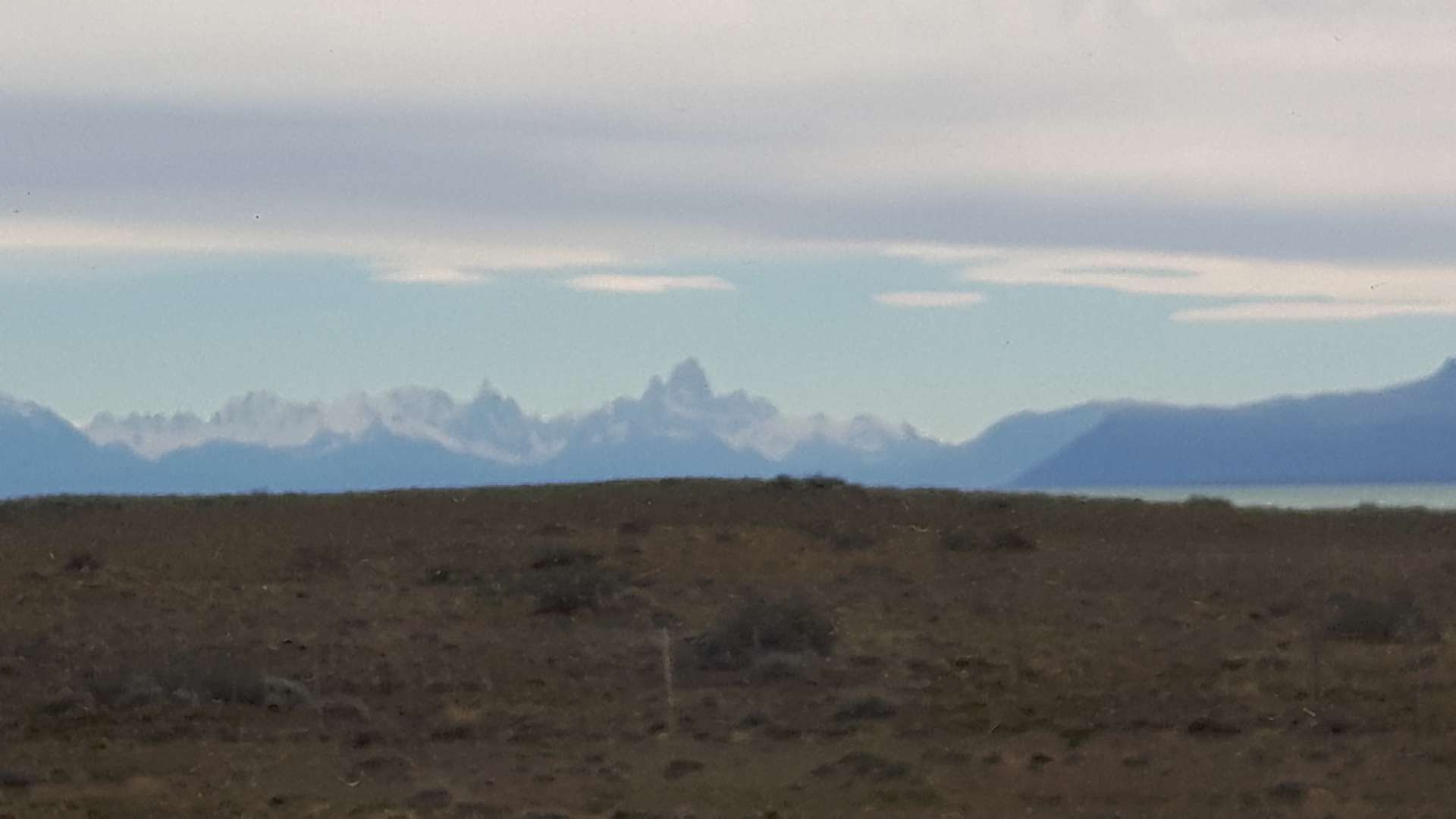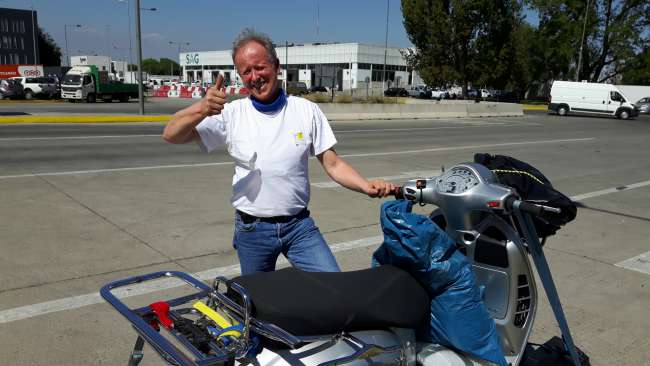from 20.05.: Arica - 20 km from Peru
Julkaistu: 21.05.2017
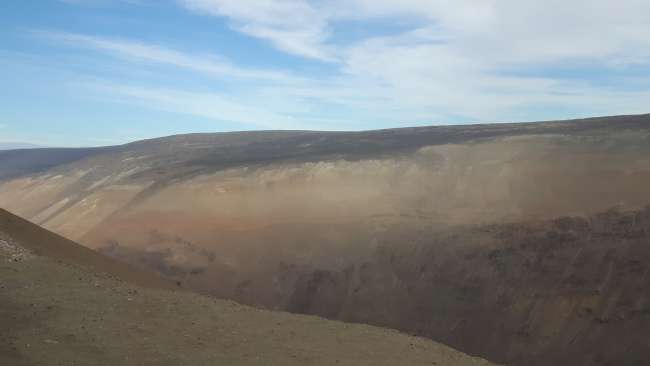
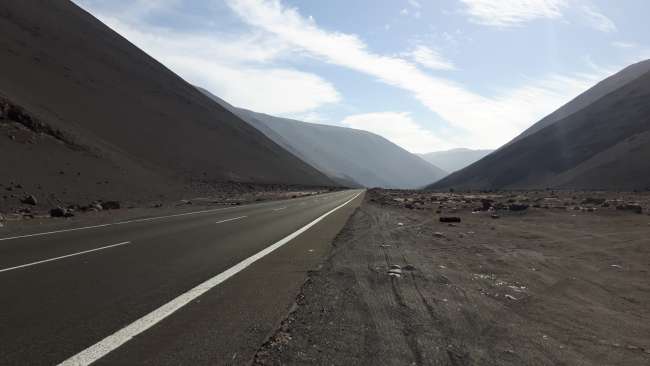
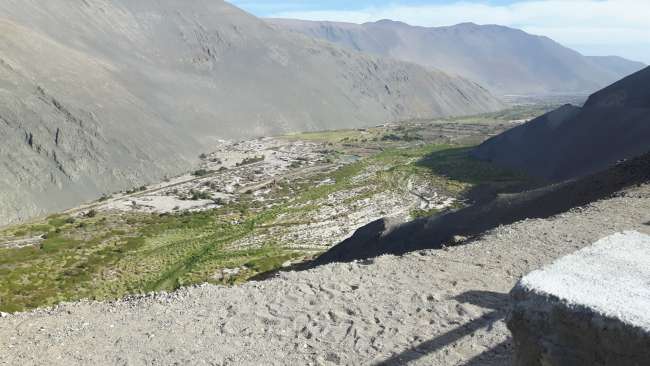
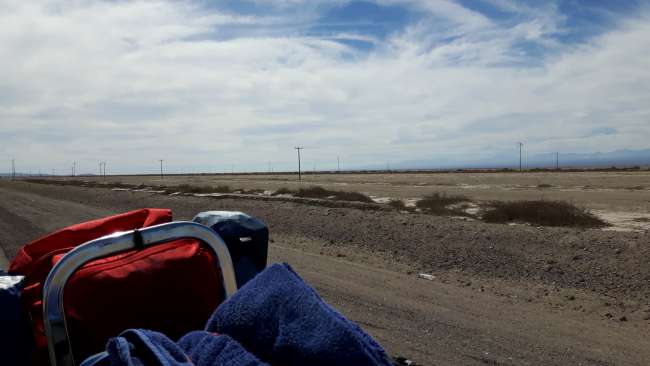
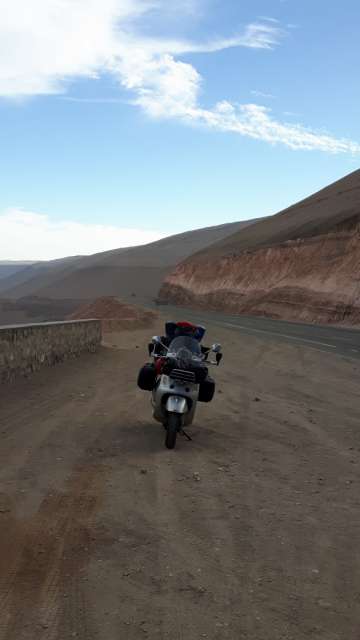
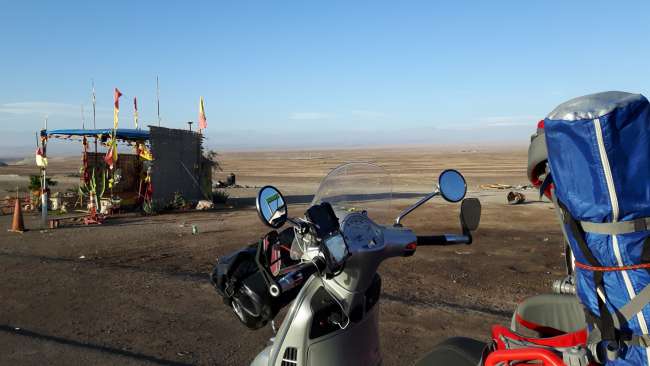
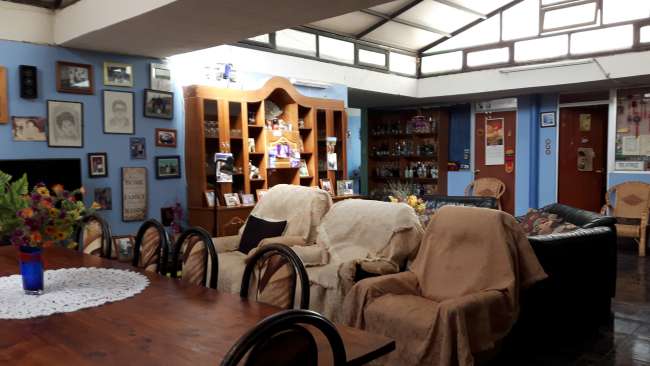
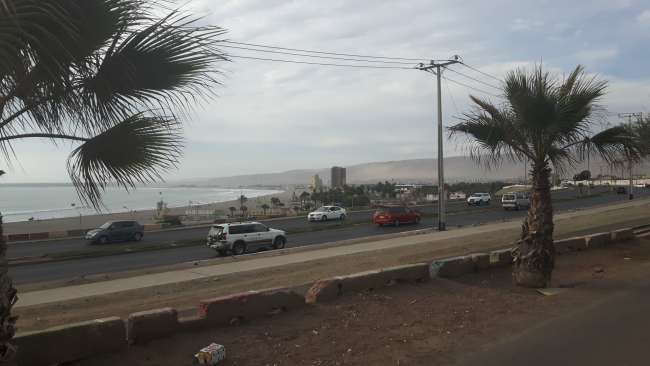
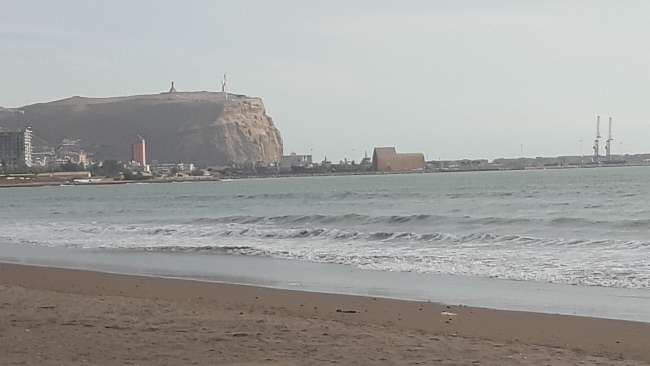
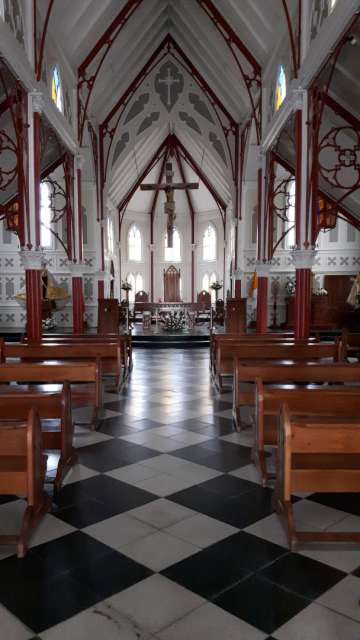
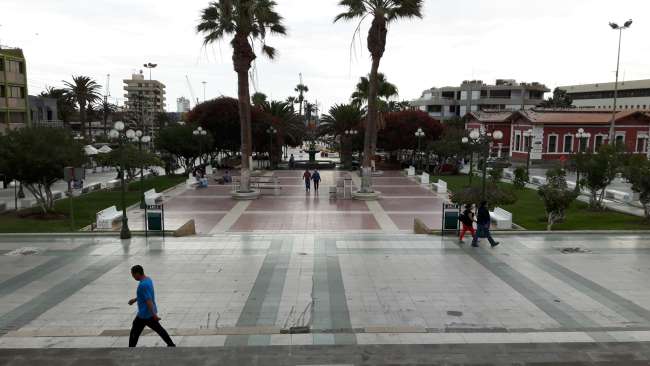
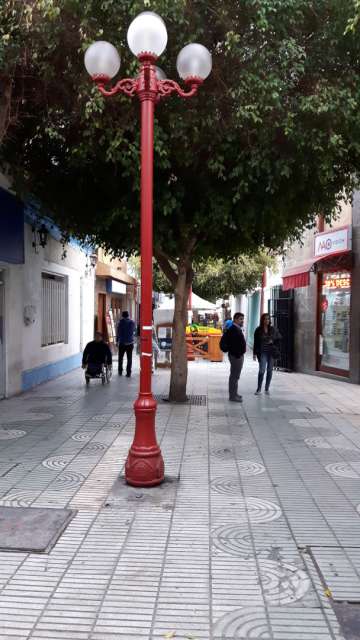
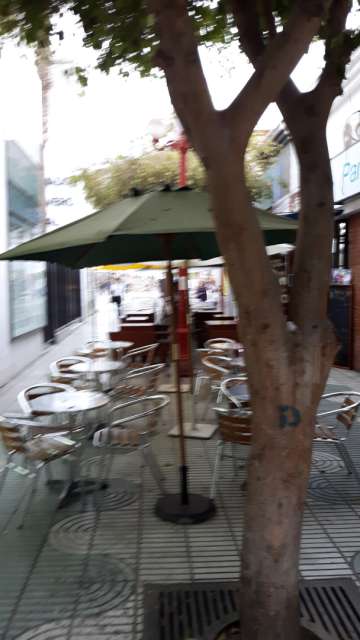
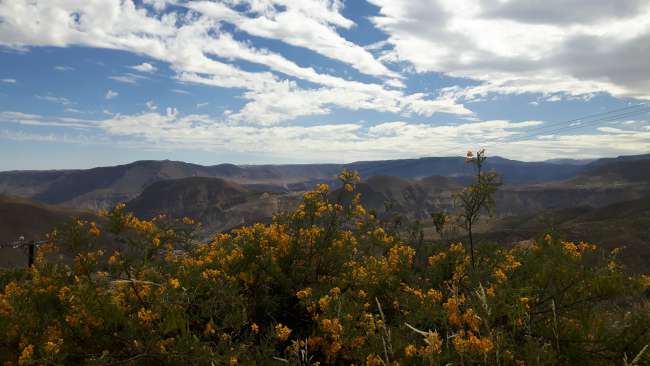
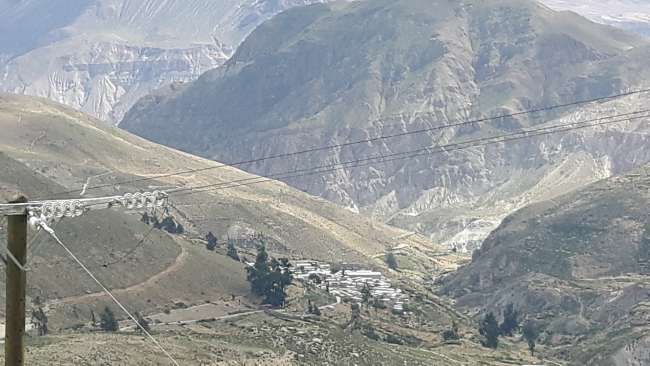
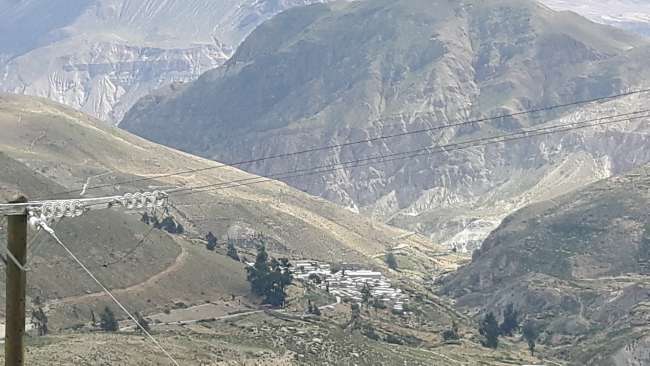
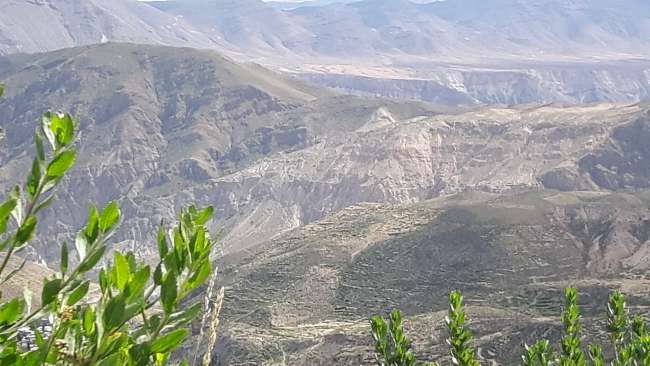
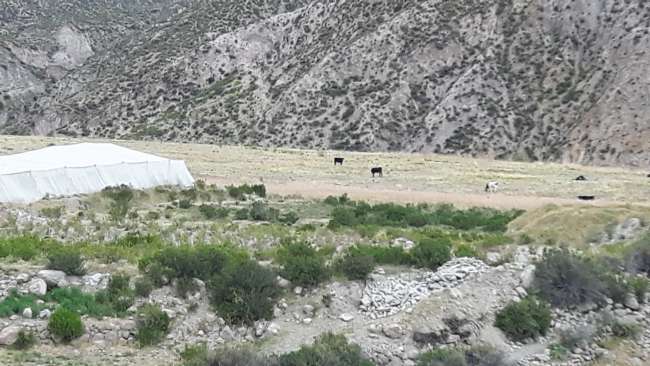
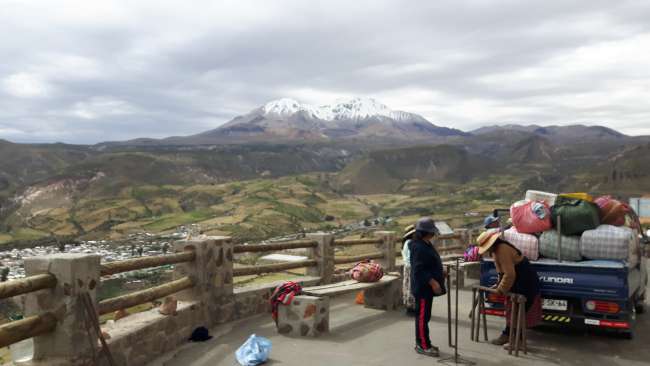
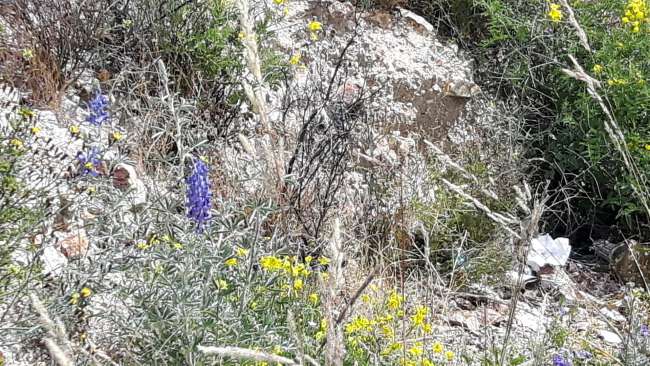
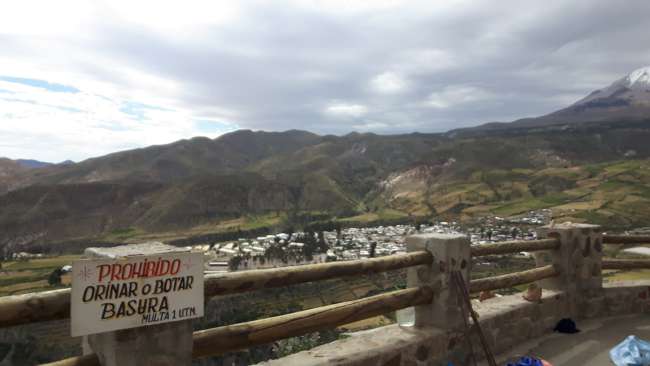
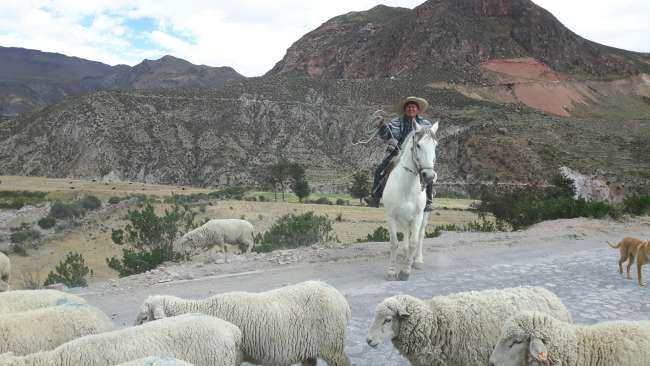
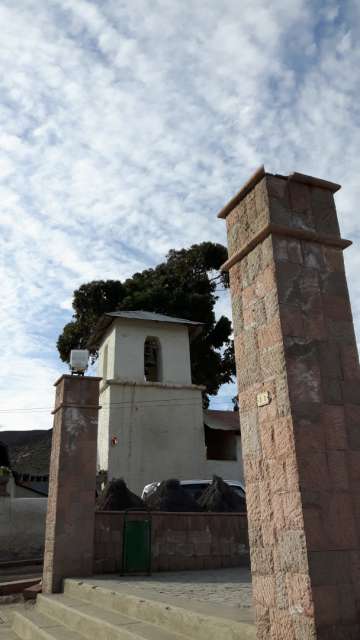
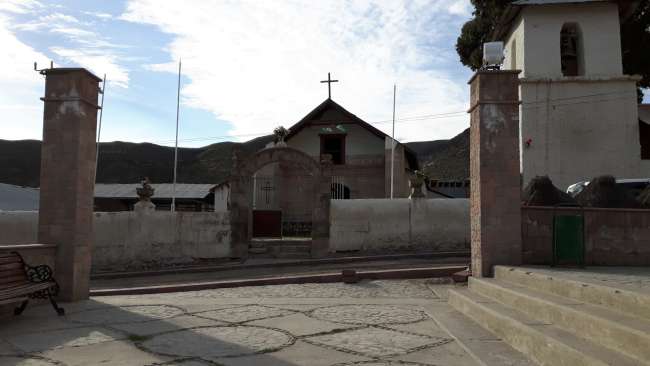
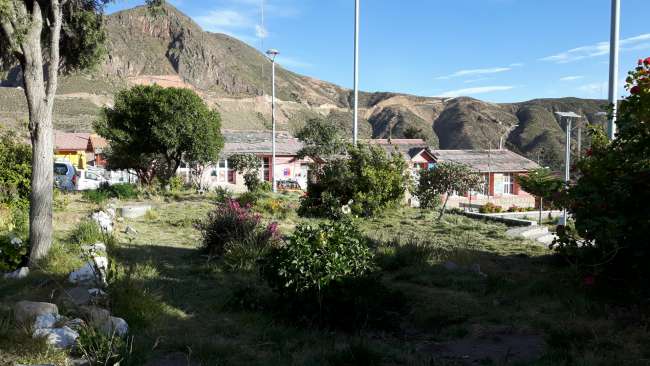
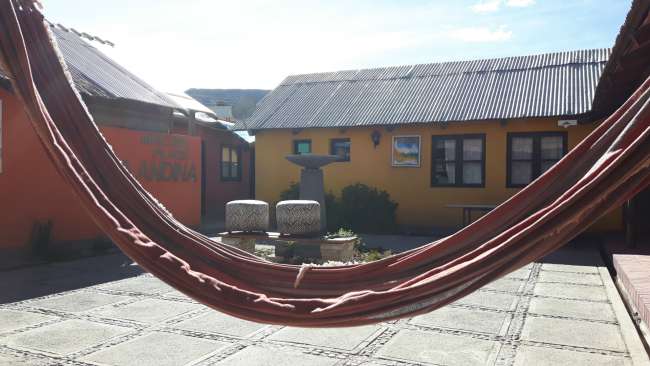
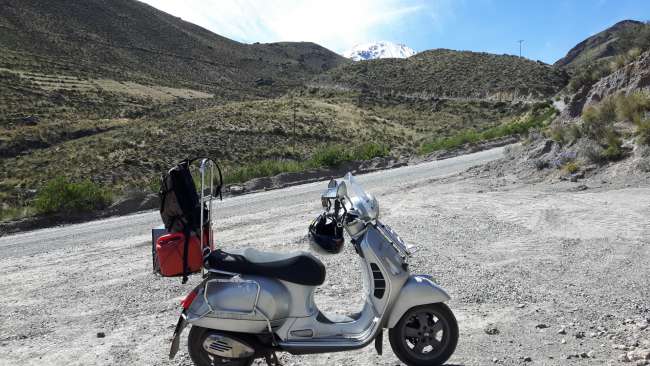
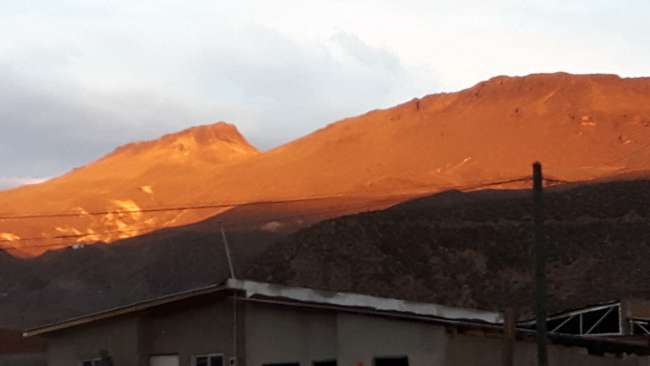
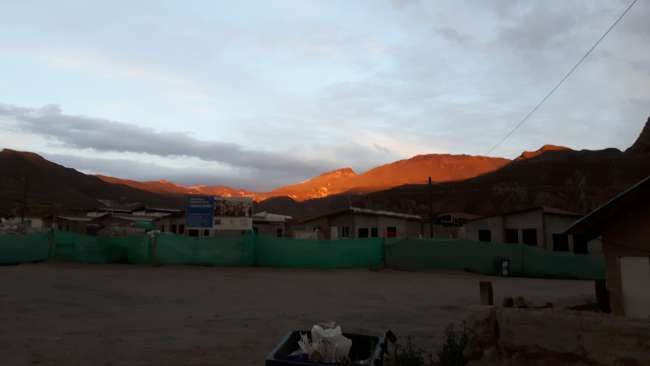
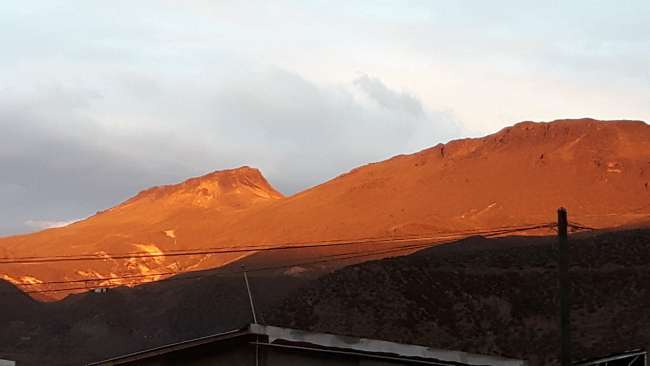
Tilaa uutiskirje
20.05.
Today we continue to Arica, the northernmost city of Chile. It is over 300 km away from Iquique. The Ruta 1 directly along the coast is replaced by the Panamericana in Iquique. This means that I pass by the ghost town of Salpeter and get a good view of this huge area. I left the hostel too late - a bit worried about how the Vespa behaves on the mountains out of Iquique, but then I realize that yesterday's mishap does not have any unpleasant consequences. It climbs the mountains, overtakes slow buses and trucks, and confidently passes under the bridge where it struggled two days ago. None of that, we leave Iquique behind and after S. Humberton, only emptiness, high plateau, and boredom welcome me. The distance signs to Arica now say 275 km. I don't think I will make it. The further north we go - also in the next few weeks - the question of accommodation with a bed and shower becomes more and more important. So is today, but I haven't pursued it and I assume that we will make it.
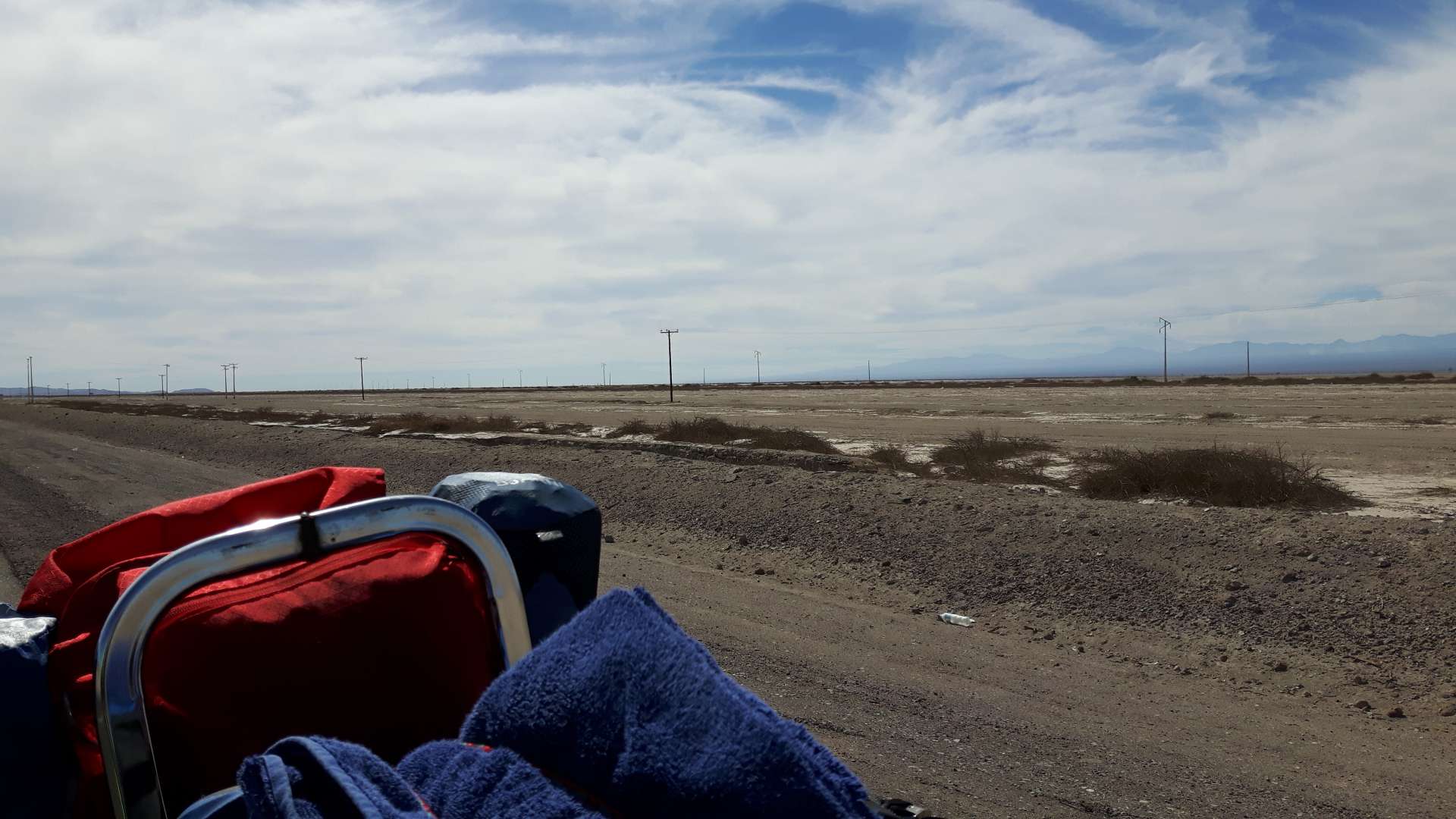
Occasionally, we stop for a break and a refuel, and then the landscape slowly changes. The roads become curvier, the mountains more colorful due to their mineral content, the inclines become steeper, and there is more to see. The inclines that we crawled up with a speed of 21 km/h just a few days ago, the Vespa now handles confidently with a speed of 80 km/h. The wind picks up, really. What I've experienced so far was already impressive, but now it sweeps through the canyons and seems to have the ambition to blow or snatch the wheels out from under me. Taking photos is not possible as I can neither stop nor get off. Nevertheless, there are spots where I can capture the surrounding images.

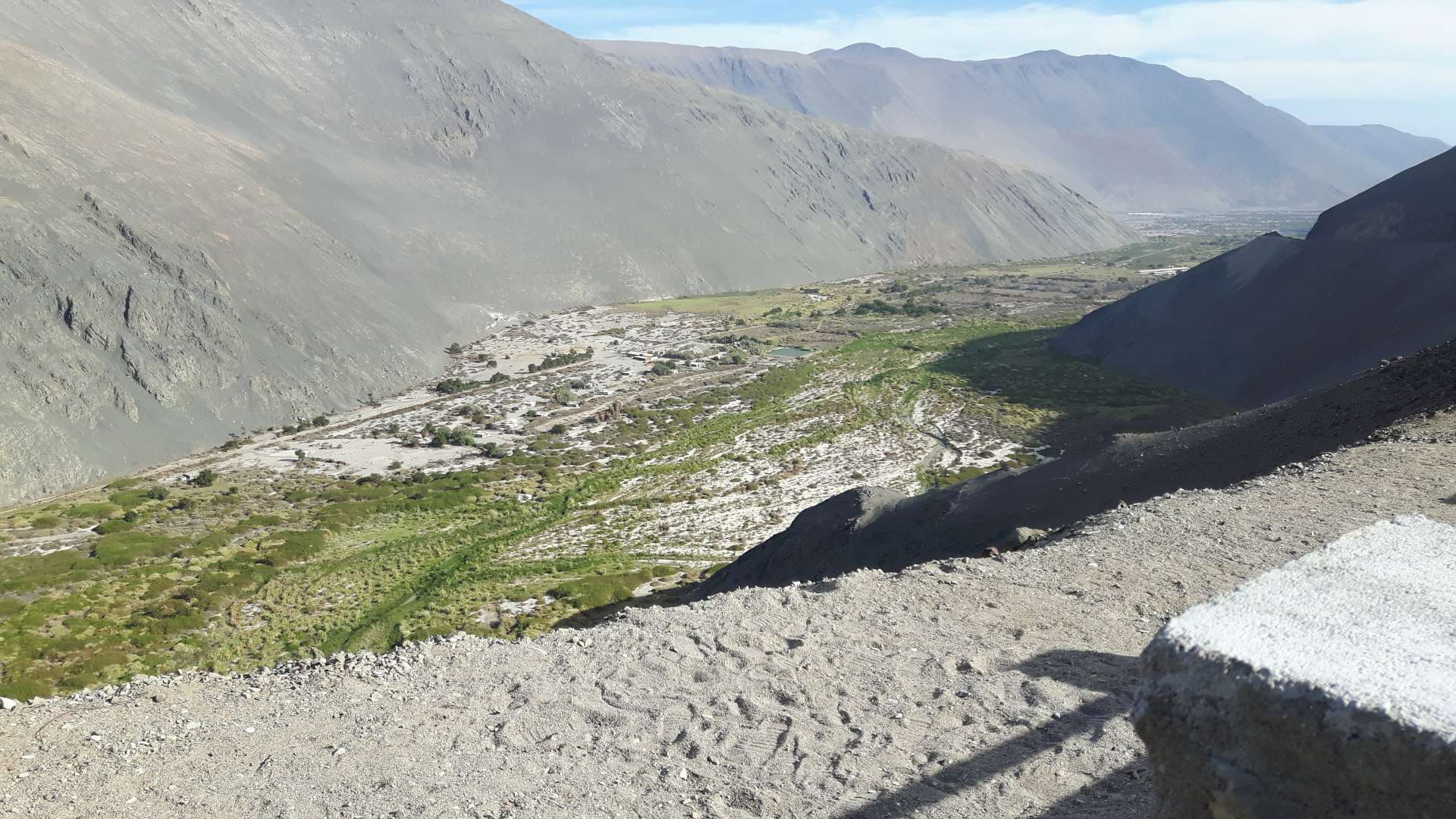
Just now olive trees(?) lined the road, and now this view from above into the fertile valley

The reddish colors of the rocks mix with the dust that the wind stirs up in the canyon


Only fifteen kilometers left to Arica.
I'm good on time. The sun is already quite low, making the ride more of a guessing game about the location of the lane and the curb, as even the sun visor is completely exposed to the low angle of the sun. So I tilt my head forward until my chin, just to make use of the lower edge of the visor. I see the Pacific again. Arica does not present itself as pompous as Iquique, but rather humble. First, I am greeted by favelas that almost resemble junkyards. Then come the typical 1-3-story Chilean wooden houses, which are constantly being expanded depending on financial situation and family development. become.
At a red light, I doze off as I hear enthusiastic shouts: Vespa! Vespa! A windshield cleaner - of younger age - approaches me and shakes my hand with excitement. Yes - the Vespa brand (Lambretta) apparently evokes sentimental memories in many people here. A dignified man around 70 years old contemplated the Vespa in Iquique thoughtfully and then said he used to ride a Vespa 20 years ago. At the gas station, I am asked for photos and get honks of approval on the Panamericana. On my way to the city center, I stop and search for a hostel on my smart phone. After a few minutes, I arrive at 'Sunny Days' and instead of a host, I am greeted by a 70 to 80-year-old New Zealander who has permanently settled in the city of eternal spring. I feel like I'm back in the days of bed and breakfast in Ireland. The atmosphere in this house is English. The walls are covered with pictures of his family and distant landscapes, the shelves and the many side tables are filled with trinkets and many memories, the refrigerator is covered with stickers from different countries, a large long table is for communication and long breakfasts, many armchairs, some of them covered with soft blankets, and from this room, his private rooms branch off. A large skylight gives the approximately 60m2 room a special lighting. We quickly come to an agreement, and while I fill out the forms, he returns with a glass of lemonade and a small plate of cookies. That's what I call service! Small gesture, big effect! New Zealand hospitality.
in the hallway to the traveler's rooms, a lit statue of Christ attracts attention, the rest of the house, where the four-bed rooms or privados are located, has a slightly confusing floor plan, I can't find my way back to my Vespa in the courtyard and have to ask. Communication is also the focus in 'our' rooms, with tables and chairs and a sitting area. Power outlets for the rather communication-disrupting smartphones are rare...
It's already dark, the supermarket and the market hall are not far away. I stock up on spaghetti, tuna, and cream and look forward to a good meal, which luckily is quickly ready. Because the apple from noon did its duty by now.
21.05.
The night in the fully booked four-bed room was quiet. I didn't hear anything from the latecomers. But this morning, there was hustle and bustle among the London travelers - my roommates: Hurry up, the bus leaves in 35 minutes!! Confirming murmurs and grumbling from the others, but no consequences in the form of getting up quickly.
I fall back to sleep and later realize that the affected beds are free. Before getting up, there was certainly another fifteen minutes of smartphone annoyances because its owner didn't know how to turn off the alarm. Hostel experiences that every low-budget traveler knows.

The breakfast table is set in the private rooms of our hostel father at the long table.
Tea, coffee, cheese, margarine, and crispy fresh rolls from the bakery. Even oatmeal, kiwis, bananas. At first, we are 3, then almost the entire table is occupied. We are silent, some read their emails. Our landlord does not like that, and while removing used dishes, he comments that we apparently have nothing to talk about. I explain it with morning grumpiness and leave. Awkward laughter from the others. And indeed, the conversation slowly picks up. Our Australian woman - a 80-year-old traveler - manages to trigger bursts of laughter. She is an elderly lady who travels the world every year. She is the epitome of sociability, also sleeps in a dormitory, and doesn't mind that her lower row of teeth has yielded to the demands of her life.
On my left is a young Danish woman traveling alone, a South American-looking youngster who actually comes from Schaffhausen (!), and another German. Later, two Englishmen from Birmingham join us, who are on vacation here.
The rest of the day is spent with a nap, writing, and a walk to the beach. Arica is different from Iquique, quite littered and neglected. I have only seen the beach - tomorrow I will go to the city center and see what awaits me there.
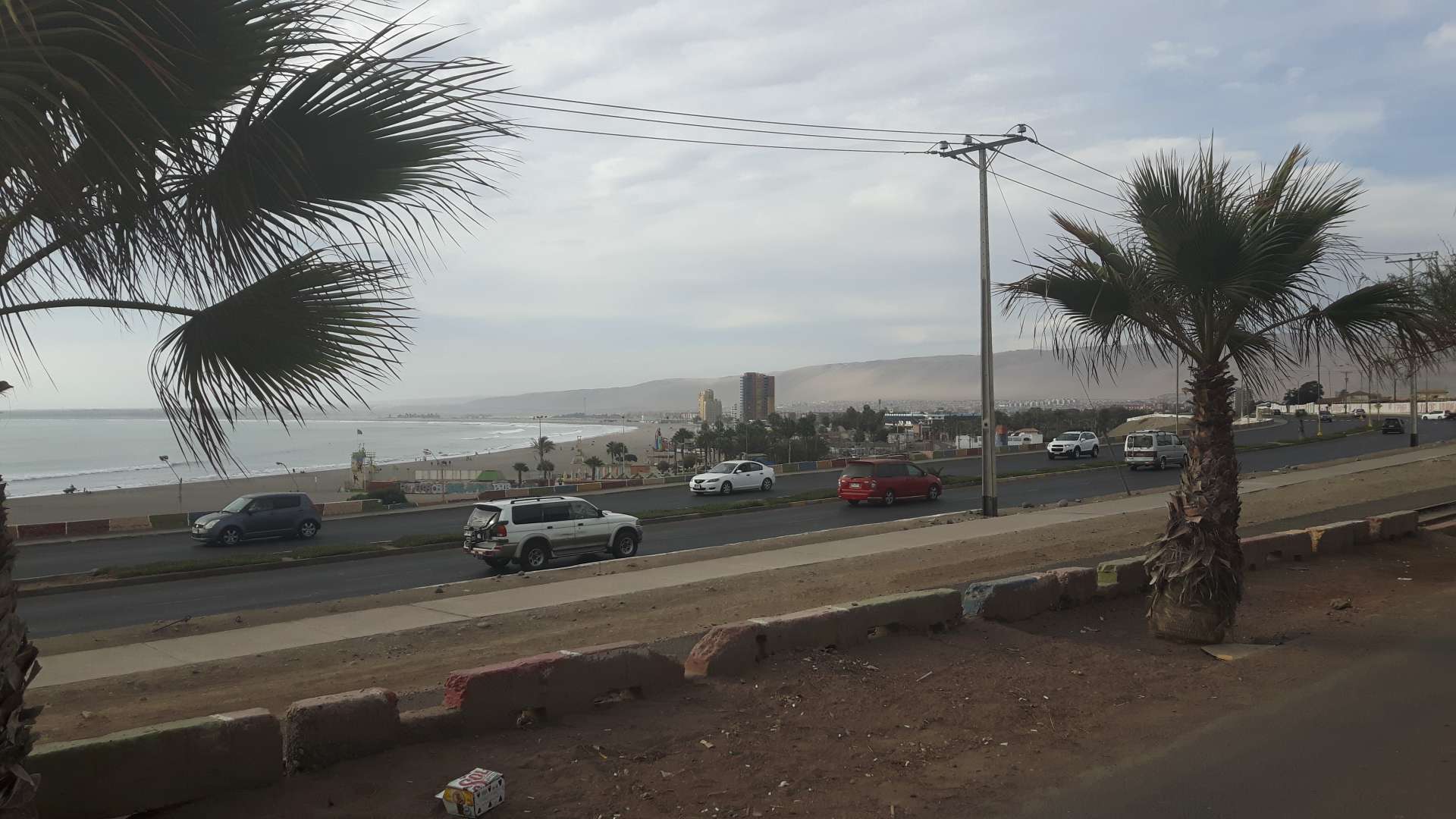
I am not yet captivated by the charm of the city of Arica...
22.05.
Monday morning.
The Liceo, the school opposite, sends waves of noise through the open window. Then it becomes quiet, and the strict voice of the school director can be heard over the schoolyard, amplified by a microphone. The children are probably being oriented towards the new week, strict words echo across the schoolyard - not a peep from the kids. Then a child has to step up to the microphone from the protective crowd and say something. Unfortunately, I can't understand it well, partly because I lack the vocabulary, and partly because the sound system is hopelessly overdriven. And then the national anthem begins, sung by everyone. Finally, peace returns, and I can turn around again.
Today is another rest day.
Since I will continue to Peru tomorrow, I have to decide which route to take and whether I will cross the Andes from Peru later. Lima is on my agenda, but it is still 1,300 km away from here! Lima, because I want to have a thorough inspection at a Vespa workshop there and also have contact with the local Vespa club.
The suggestion to drive from Cusco through the Andes to Brazil comes from an Australian who has traveled the route and says it's all downhill. Reassuring. The route is newly made and is called 'Transatlantica'. Cusco is located at 4,200 meters above sea level, which first has to be conquered. Otherwise, the mountains in Peru will be a challenge for the Vespas and me. The inclines and the resulting thinner air.
But maybe during my tour, other possibilities will come up...
In Peru, the towns are far apart, and Google Maps assumes an average speed of 50 km/h. This doesn't necessarily indicate the quality of the roads but rather the numerous curves and the gradient. Tomorrow, I will only cross the border and hope that it won't take too long, then it's another 50 km and I'll be in Tacna. There should still be hostels there.
Then in the next few days, I will continue along the coast and improvise my overnight stays.

Here the Battle of Salpeter took place as well
I use the second half of the day for a visit to the city center. A sad city. The sidewalks are not paved, dust and garbage. In the city center, it's better, but everything is gray, no colors.

I learn to appreciate cathedrals and churches on this journey - as well as on other trips. The atmosphere, the tranquility, and the surroundings have a relaxing and invigorating effect on me
houses, little street art, bleakness. The highlight is a rock that rises 110 meters above the sea and gained significance during the Salpeter War.

The view from the church portal onto the plaza. Purpose-built buildings dominate, skateboarders bring a bit of life, otherwise the South American 'drive' is missing here
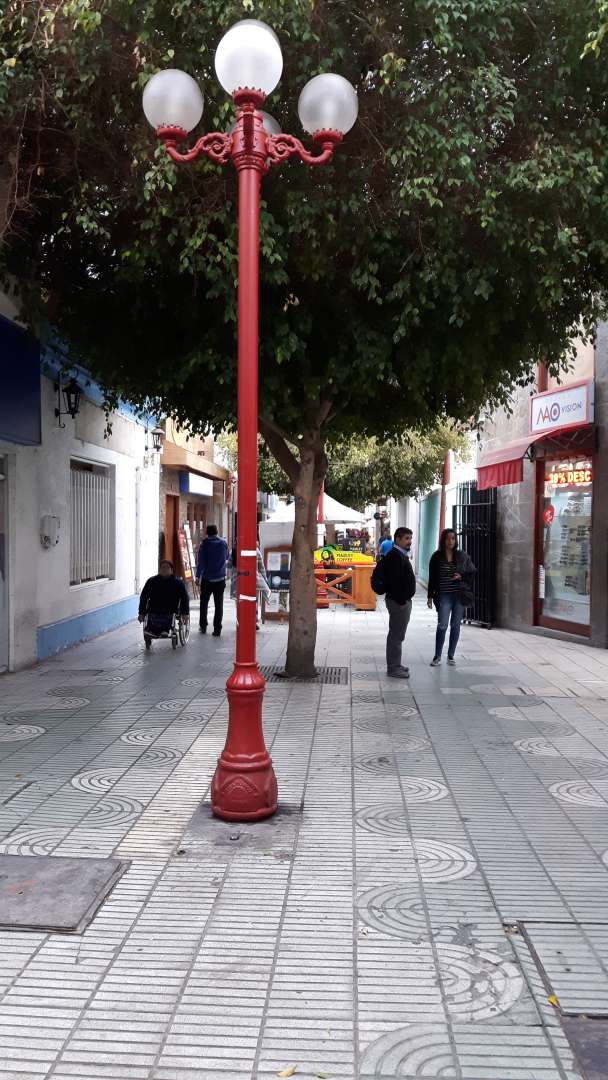
The pedestrian zone can offer more: street cafes and vendors - today rather reserved
Does a new section of my so far moderately progressing Vespa tour begin tomorrow?
23.05.
And again, I can quote Brecht: just make a plan...
Today, I received a WhatsApp message from Wilfried. The ordered parts for the Vespas have all arrived. I am excited and know from times when Nora was still in Brazil and urgently needed documents for her new passport, that DHL Express delivers to your doorstep in two days for 80 euros. I mentally prepare myself for two days, but when I tell Ross, our hostel father, and therefore only book two more nights, I am met with a rather pitying look and the remark that it will probably be two weeks rather than two days...
I don't give up yet and find a great help in Ute. She picks up the package, takes it to the post office, but has to say that it will definitely take longer than two days.
Alright - I have to change my plans and tomorrow I will drive to the Lauca National Park. I can leave part of the luggage, the Heidenau tires, and backpack, here in the hostel and then visit the highest lake in the world. There is accommodation in Putre, and the next day we will continue.
Tilaa uutiskirje
Vastaus
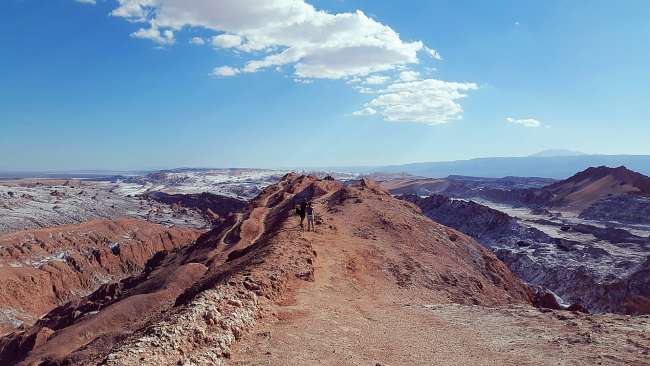
Matkaraportit Chile
